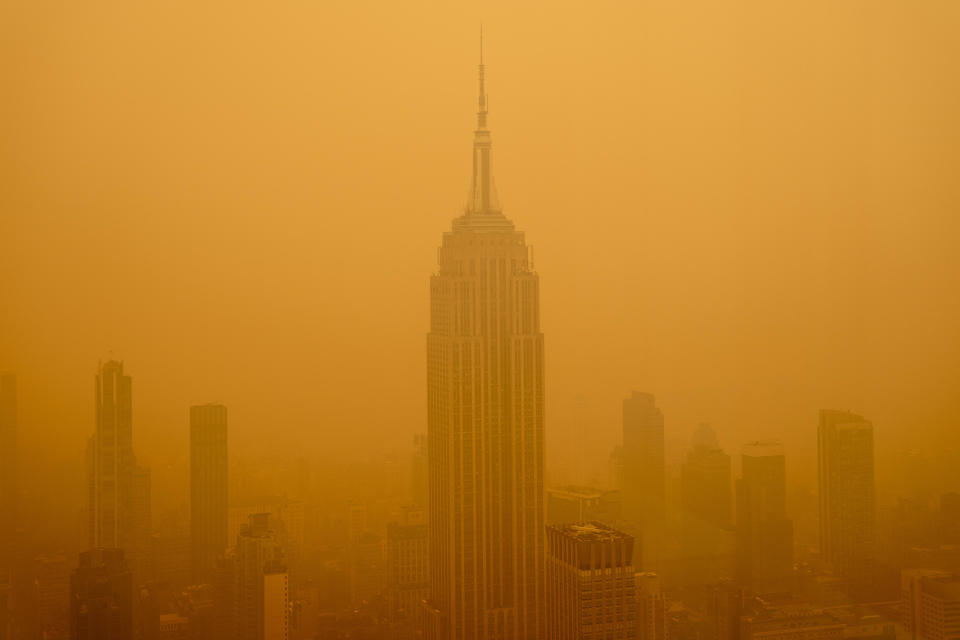The American Lung Association released its latest “State of the Air” report, revealing that almost 40% of people in the United States are living in areas with air pollution considered hazardous to their health. The report, based on data collected from 2020 to 2022, shows that 131 million Americans were breathing unhealthy air during this period, up by almost 10% from the previous year. There is a disproportionate threat to people of color, with experts warning that climate change is making air quality harder to manage despite efforts to reduce emissions.
The report focuses on two groups of pollutants: fine particles and ozone. Fine particles come from combustion and chemical reactions, while ozone is produced when pollutants react with sunlight. The study found a continued increase in days with very unhealthy or hazardous levels of particle pollution, affecting millions of people across the country. Many cities received failing grades on the Air Quality Index due to poor air quality, highlighting the need for improved measures to protect public health.
Bakersfield, California, was identified as the worst city for daily and year-round particle pollution, followed by cities in California, Oregon, Arizona, and Alaska. Cities affected by drought and wildfires, such as Los Angeles, were prevalent on both lists due to poor air quality. Meanwhile, ozone levels in cities like Los Angeles, Visalia, and Bakersfield were identified as harmful to human health, with experts linking high ozone levels to breathing problems and lung infections.
Despite trends showing a downward trend in ozone concentration over the past 20 years, around 100 million people across 26 states still live in areas with failing grades for ozone air quality. Extreme heat, lack of precipitation, and wildfires associated with climate change have hampered efforts to reduce emissions, particularly in western states. Los Angeles, known for its infamous smog, ranked as the worst city for ozone pollution, followed by cities in California, Arizona, and Colorado.
The report highlights the ongoing challenges in managing air quality, with cities across the country facing persistent issues with pollution. Despite the progress made since the Clean Air Act was passed in 1970, experts warn that climate change is exacerbating air quality problems, particularly in regions experiencing extreme weather conditions. Efforts to address these issues will require a coordinated approach at the local, state, and national levels to protect public health and mitigate the impact of air pollution on vulnerable communities.








